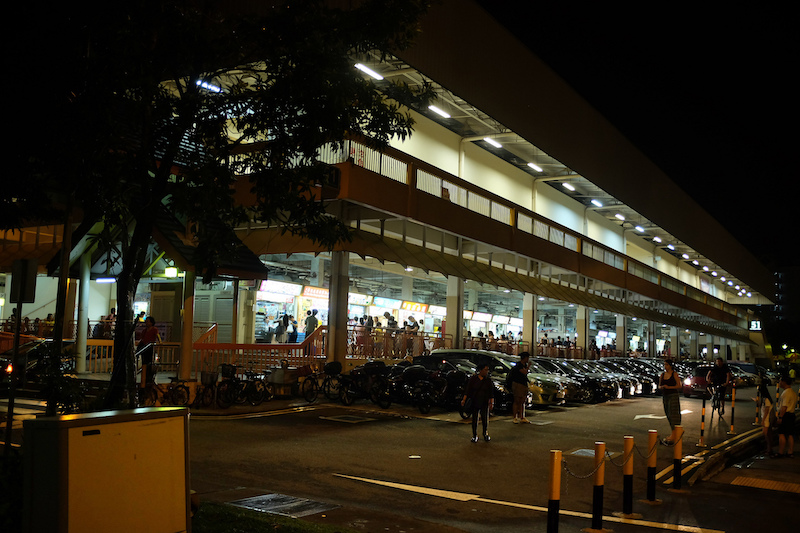Recently, the public got to know that Old Airport Road Food Centre — one of the best places in the country for some solid local cuisine since ’73 — had a change in management. According to a Channel NewsAsia report, social enterprise NTUC Foodfare took over the operations of the beloved hawker center from the National Environmental Agency two years ago.
CNA then got some anonymous hawkers to go on record to say that crockery collection fees (including dishwashing) have risen up 40 percent since NTUC Foodfare took over. Now, vendors have to pay $580 a month, on top of other costs.
Gary Ho, a longtime patron of Old Airport Road Hawker Centre, took to Facebook yesterday to publish his thoughts about the new management as well as what he found out from the hawkers themselves. Like what Makansutra founder and local food guru KF Seetoh wrote about before, the vendors under these Social Enterprise Hawker Centres (SEHC) are apparently being unfairly treated by the new management, and are probably making it more unconducive to be a hawker.
Check out what Ho had to say.
No transparency
“When I went there yesterday, one of the hawkers I know very well was lamenting to me how recent changes are going to kill the hawker center. So, apparently NTUC took over the management of the hawker center and they were all made to sign ridiculous legal documents in English without a translator informing them what they were signing. When they asked what was the content, the ‘ang kong kia’ (a heavily-tattooed, thug-looking man) said ‘nothing much lah’ and to ‘just sign’.
The hawker told me it is like NTUC hired a bunch of debt collectors to visit them. How can you make hawkers sign a legal document with no translation provided???”
Cleaning costs
“Then their monthly cleaning costs rose to $500+ from $300+. This hawker has been there since I was a kid. They have seen it rise from $4 to $80 to $100+ to $300+ last round and now $500+. Stalls that sell mainly takeaway items and have nothing to wash are also charged the same rate now whereas the previous contractor voluntarily gave them a slight discount since they used less resources. When asked if NTUC could continue to give them a discount, silence….
I know costs have risen but is this profiteering? If the previous contractor could do it at $300+, why the almost doubling of charges?”
Long hours
“The new contract they signed also mandates that they must stay open for super long hours. The old hawkers protested to this and are not complying. They said if they force them to open, they might as well close and retire. Their point is very valid. They said why open when there is no one coming? People who make these rules should consult the hawkers since they have been there for ages and know their operating environment well.
Hawkers are independent operators. Since when are they now working for NTUC and since when has NTUC become their boss??? Also, how does forcing elderly hawkers into working long hours make things any better?”
Restriction of movement
“I really got upset when I was told they now need to report their movement to the contractor or face punishments. So this hawker was told they need to inform NTUC whenever they are closing to take leave. When the hawker informed them, they asked the hawker is anyone manning the stall? The hawker replied yes, then they said no need to inform. So they were like, must report also you say, no need to report also you say.”
Social Enterprise Hawker Centers
The issue of homegrown hawkers feeling smothered by social enterprises and their allegedly unreasonable practices have been a hot-button issue for the past couple of months ever since Prime Minister Lee Hsien Loong wanted hawker center culture to be recognized by the United Nations. It was Seetoh who brought up the issue that such SEHCs aren’t sustainable environments for hawkers.
These newer hawker centers are different from standard open-air food complexes in Singapore; SEHCs are run by social enterprises with the purpose to keep dishes affordable. These social enterprises — such as NTUC Foodfare — will help hawkers to allay costs by purchasing basic items such as rice, eggs, and cooking oil in bulk.
But it appears that hawkers at SEHCs actually have to pay more in rent and miscellaneous fees, on top of mandatory requirements to operate stalls for longer hours. And despite the high costs of operation and management fees, these hawkers are still expected to offer at least one dish at below $3 in their menu.
In his post, Ho added that the hawkers are grateful to Seetoh for bringing the issue up in public because the Member of Parliament they spoke was allegedly no help at all.
“I decided to write this long post so that you guys are aware of what is happening and know that the reports coming in fast and furious about these so-called social enterprises are not fake news,” Ho wrote.
“We’d better go and eat there before they all leave.”



